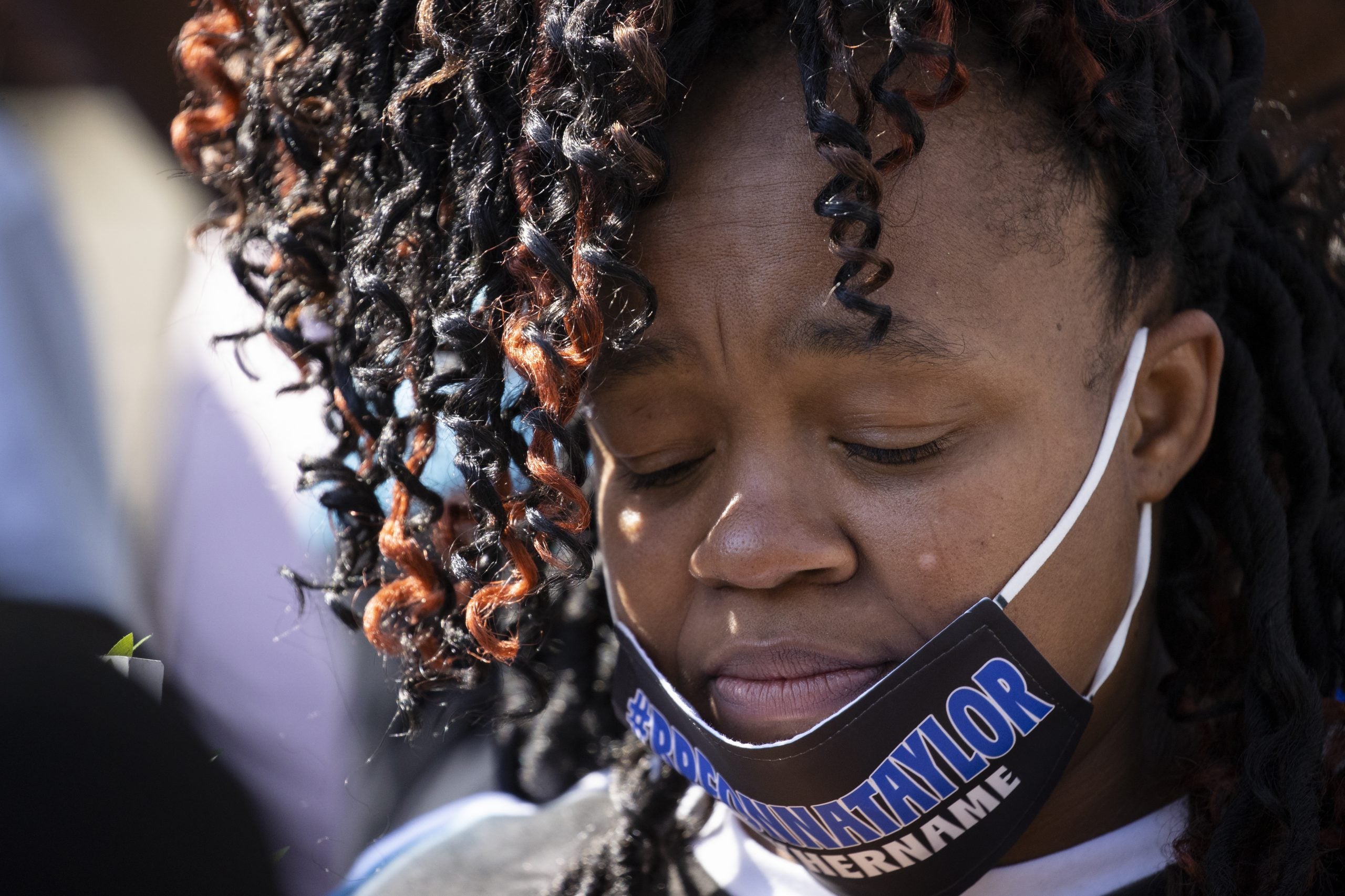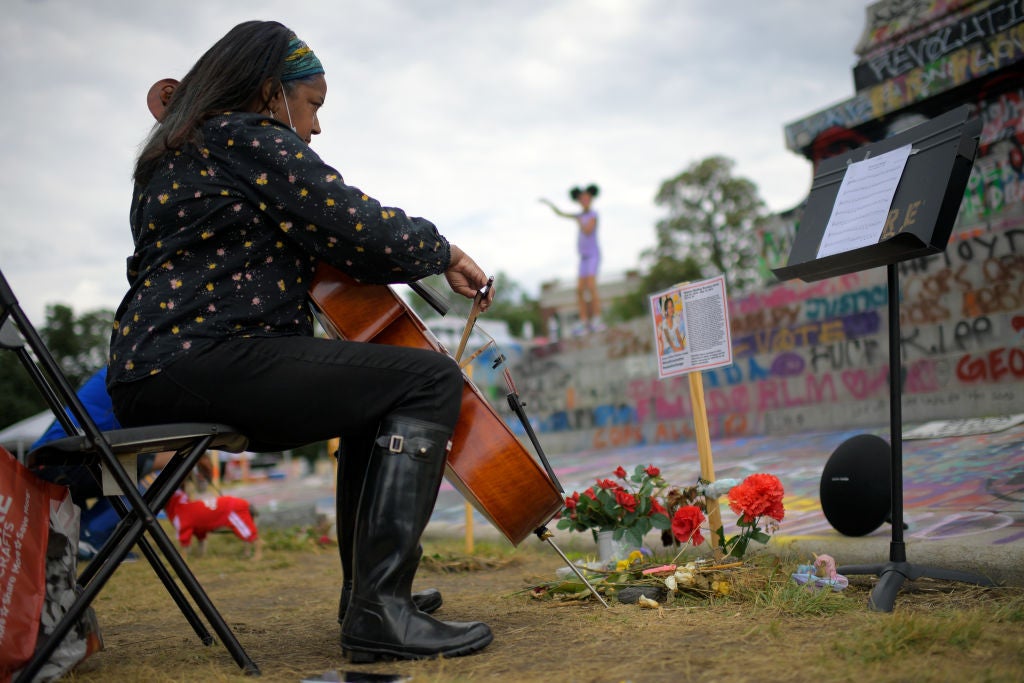
As Black people continue to suffer disproportionately from the COVID-19 pandemic, police brutality continues to devastate our communities across the nation, sparking Black Lives Matter protests on nearly every continent.
Black people are 3.23 times more likely than white people to be killed by police in the U.S. The extrajudicial killings of Breonna Taylor, George Floyd, Rayshard Brooks, and Daniel Prude—to name a few—have tugged at the enduring fears parents have about raising Black children in America.
Three mothers share their experience of what it feels like raising their child in the current climate of racial inequality and police injustice. While they all have different lived experiences, they all know that, ultimately, raising Black children in a safe environment requires an anchoring in political awareness, Black joy and investment in community resources.
Inas Mahdi, doctoral student, public health researcher, fellow – 40-year old mother of 2, aged 13 and 7 years. Democrat, Atlanta, Georgia
I keep the energy in my home focused on centering Black joy and Black liberation for my children and consistently reframing what our community needs for Black joy. My children are aware that my work and life focuses on Black liberation and wholeness, particularly in my public health work, but I shield them from too many graphic displays of Black death. They do know about a string of Black Lives that have been lost. But more importantly my dominant message is we can create the reality we want and Black joy is possible here.
My daughter knows to document everything, every injustice that occurs via the school resource officers, when racist teachers collude with authority, when students are unfairly treated based on race. She knows that these incidents are not the standard by which we should live in community. My son knows that when we play Legos, there will be no police versus bad guys. I explain to him that sometimes the police are bad guys. So, for us, even play responds to ideas that community safety is not a matter of police involvement. Even during play we can re-train our minds around the necessity of police and what an investment in our community looks like. In addition to these things, we focus on centering the beauty and joy of Blackness in this household. That translates to playing Black history board games and knowing that movie night should feature a Black main character in an empowering role. We re-watch a lot of classics.
My children must know that Black freedom does not lie with pouring more money into the police. Communities will thrive when those dollars are reallocated for real, meaningful community development.

Jasmine Nixon, assisted living facility worker, 26-year old mother of 2 children, aged 11 and 6 years. Democrat, Birmingham, Alabama
I support calls to defund the police. My own encounter with law enforcement was a wakeup call. Now, I don’t ever want to run into the police, because they are not trained to de-escalate. They are trained to kill. In Birmingham, they are closing most of the recreation centers in the city; libraries are also being defunded. They mayor says we don’t have the budget for those things…but there is still money going into the police. The police will be saved instead of saving our kid’s education.
It’s a scary and dangerous time. I don’t want my kids to be targeted because of their skin color. My son knows some police are nice and some are mean. I only let him play with his toy guns in my house or at family’s house. Because of what happened to Tamir Rice, I don’t want my baby to be a 6-year old victim where there’ll be no investigation into what happened.
My neighborhood also gives my children a community fabric and a sense of protection. My neighbors are family. They look out for my kids, my house, and my car. I honestly don’t even think my kids will be protected by the police. They aren’t protecting us because we are still afraid when the police are around.
Folayemi (Fola) Clair, IT Specialist, 34-year old mother of 2, 5-month old twins. Democrat, Hanover, Maryland
Raising Black boys in today’s climate brings about a lot of anxiety for me. I am eager to teach them about their value before society can define them. I don’t want my children to think that all police are on their side, but they also should know that not all cops are evil. If they are in trouble or they witness something wrong, I do want them to call the police but also to cover their ass as Black men.
With the upcoming presidential election, then governors and mayors, etc. who knows what will happen. We could move in a positive direction and then land back at square one after the election. Whatever happens, my children will understand who they are voting for and how it will affect them. Even with everything that is currently happening, I want my children to know that 50 years ago things were a lot harder than they are now, so they need to do something with their lives and give back to our community. So, that 50 years from now, it’s a lot easier for their children.
***
Inas Mahdi, National Training Director for the National Birth Equity Collaborative, where she trains Maternal health providers on anti-racism as praxis for birth equity and systems change.
Phoebe Wescott, Birth Equity Analyst for the National Birth Equity Collaborative, where she focuses on improving health outcomes for Black mothers and babies.